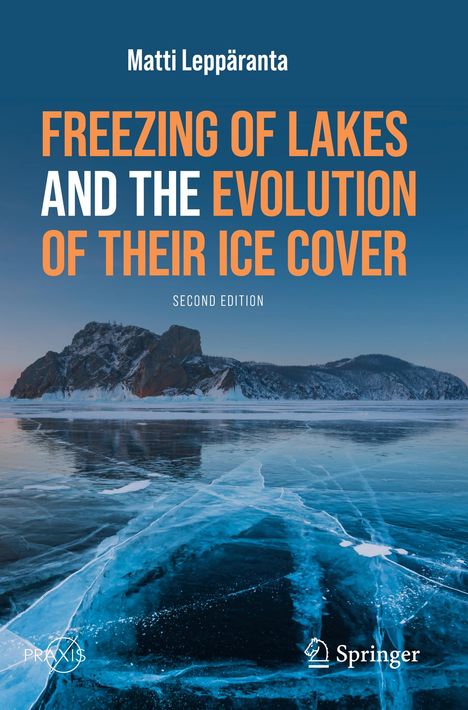Matti Leppäranta: Freezing of Lakes and the Evolution of Their Ice Cover, Kartoniert / Broschiert
Freezing of Lakes and the Evolution of Their Ice Cover
(soweit verfügbar beim Lieferanten)
- Verlag:
- Springer Nature Switzerland, 07/2024
- Einband:
- Kartoniert / Broschiert, Paperback
- Sprache:
- Englisch
- ISBN-13:
- 9783031256073
- Artikelnummer:
- 11912288
- Umfang:
- 376 Seiten
- Nummer der Auflage:
- 24002
- Ausgabe:
- Second Edition 2023
- Gewicht:
- 638 g
- Maße:
- 235 x 155 mm
- Stärke:
- 20 mm
- Erscheinungstermin:
- 6.7.2024
- Hinweis
-
Achtung: Artikel ist nicht in deutscher Sprache!
Weitere Ausgaben von Freezing of Lakes and the Evolution of Their Ice Cover |
Preis |
|---|
Klappentext
This book updates the first edition for the status of knowledge in the physics of lake ice and the interactions between the ice cover and the liquid water underneath. Since the first edition was written in 2013, there has been a lot of progress in the field, in particular concerning environmental questions and the impact of climate change. Life conditions in ice-covered lakes and practical matters are now brought more into the picture so that the revision also properly serves as a handbook for applications. The author has worked widely with boreal lakes, polar lakes and Central Asian lakes that provides a wide geographical spectrum. Chapter 1 gives a brief overview and presents the research fields. The second chapter contains the classification of ice-covered lakes and observation techniques, especially remote sensing. In Chapter 3, the structure and properties of lake ice are presented including optics and geochemistry. Ice growth and melting are treated in Chapter 4, while the following chapter focuses on ice mechanics with applications to traffic on ice and ice loads. Chapter 6 goes into the exotic environment of pro-glacial lakes. Chapter 7 contains the stratification and circulation of the water body beneath lake ice, Chapter 8 presents the winter ecology of freezing lakes and discusses the lake ice interface toward the society, and Chapter 9 summarizes the climate change impact on lake ice seasons. The book ends into a brief closing chapter and list of references. Research problems for student learning are listed throughout the book. Annexes are included to provide numerical data of constants and standard formulae to help practical calculations and student tasks. Lake ice closely interacts with human living conditions, but people have learnt to live with that and to utilize the ice. In the present time this is true for on-ice traffic and recreation activities. Ice fishing has become a widely enjoyed hobby, and winter sports such as skiing, skating, and ice sailing are popular activities on frozen lakes. The lake ice response to eventual climate warming would appear as a shortening of the ice season due to the increasing air temperature and also as changing of the quality of the ice seasons via changes in ice thickness and structure. The book gives the whole story of lake ice into a single volume. The second, revised edition updates the content based on recent progress in winter limnology and ice physics research and applications. The author has contributed to lake ice research since the 1980s. In particular, his topics have been lake ice structure and thermodynamics, light transfer in ice and snow, ice mechanics in large lakes, and lake ice climatology. Mathematical modeling of ice growth, drift, and decay are covered in this research.

